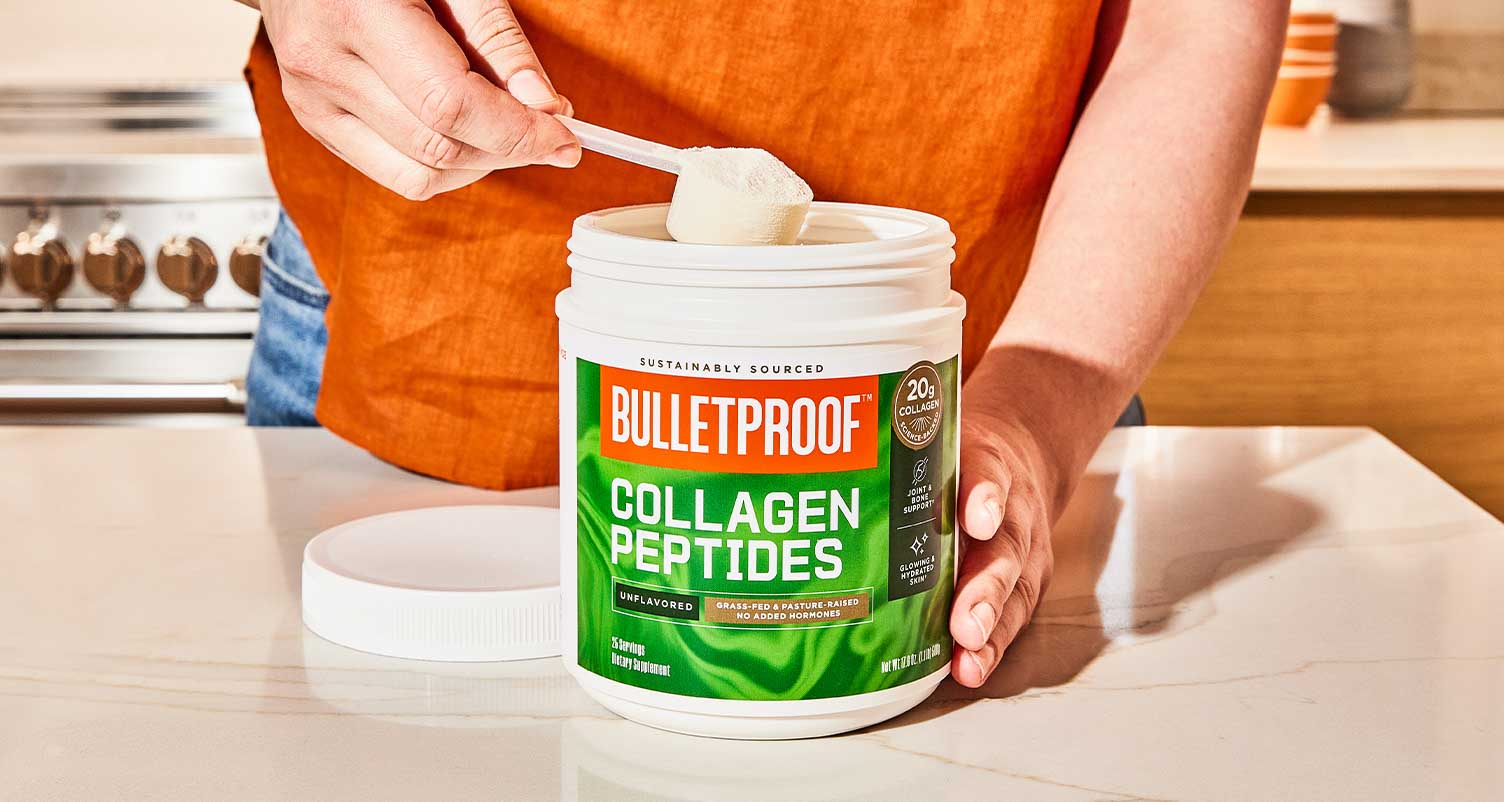- There are 28 types of collagen that exist in the body. When it comes to collagen supplements, five types reign supreme.
- Collagen is the body’s most abundant protein. It provides important benefits like supporting muscle recovery and relief from occasional joint discomfort.
- Harmful habits like smoking and consuming processed sugars can break down collagen in the body.
You’re already familiar with collagen, but did you know there are different types of collagen? Each collagen type is associated with a different health benefit. They also differ when it comes to prevalence and location in the body. Ahead, you’ll discover the best collagen supplement for your individual needs.
Types of Collagen: What They Are & What’s Best For You
Although 28 types exist, there are five collagen types that offer key health benefits around supporting bone, joint, and skin health. They are also most commonly found throughout the body and in collagen supplements.
What is Collagen
Collagen is made up of 19 amino acids with glycine, proline, and hydroxyproline being the primary ones. Collagen is the body’s most abundant protein. Collagen is the building block for healthy bones, teeth, muscles, skin, joints, and connective tissues. Without it, the body would not be able to stand or perform on its own. Our body’s natural collagen production declines as we age[1], after the age of 20. Making homemade bone broth or taking collagen supplements becomes more important as we grow older.
Types of Collagen
There are 28 collagen types produced in the body. Most collagen supplements contain one or more of the five types.
Type I
Type I collagen[2] is the building block of bone, skin, and connective tissue. It’s found in 90% of the body[3], and primarily associated with skin health.
Type II
Found in cartilage, type II collagen[4] provides flexibility and support to bone joints. Marine- and chicken-sourced collagen contain type II.
Type III
We can find the second most-common type, Type III collagen[5], in the same locations as type I collagen. Type III is a key component of our gut, muscles, blood vessels, and uterus.
Type IV
Found in the base layers of the skin, type IV collagen[6] is instrumental when it comes to wound healing.
Type V
Type V collagen[7] is involved in the development of the collagen fibers of connective tissues. It’s found in the eye, where it helps light pass through the cornea. It’s also known to support the muscles, liver, and lungs.
Bulletproof Collagen Peptides only use collagen types I and III — the most common occurring types in the body — in effective, science-backed doses to help maintain skin, bone, and joint health.†

What Are the Benefits of Collagen?
Collagen is synonymous with fewer wrinkles and more youthful-looking skin. It can also have a positive impact on our, joint and bone health[8]. A recent study on the effectiveness of collagen peptide on osteoarthritis[9] also found that collagen helped bring comfort to sore knees.
You may be wondering how much collagen you need to take to start reaping the benefits of collagen and seeing results. Our Manager of Science and Nutrition at Bulletproof recommends taking 10-30g of reputable collagen supplements every day. She adds, “… At a dose of 10g, it has been found to provide relief from joint discomfort during and after exercise.”
There is a wide range of collagen supplements to choose from for every kind of lifestyle, including hydrolyzed collagen powder, collagen capsules, liquid collagen, collagen protein bars, and more. Besides incorporating collagen in your daily diet, eliminating harmful habits is also key. Smoking, caffeine, and processed sugars can speed up aging[10] and hinder the body’s natural collagen production.
We always recommend consulting with your licensed healthcare practitioner before introducing a new supplement to your diet.
Join the Bulletproof Revolution
Sign up for early access to sales, product launches, the latest Bulletproof news and more!















